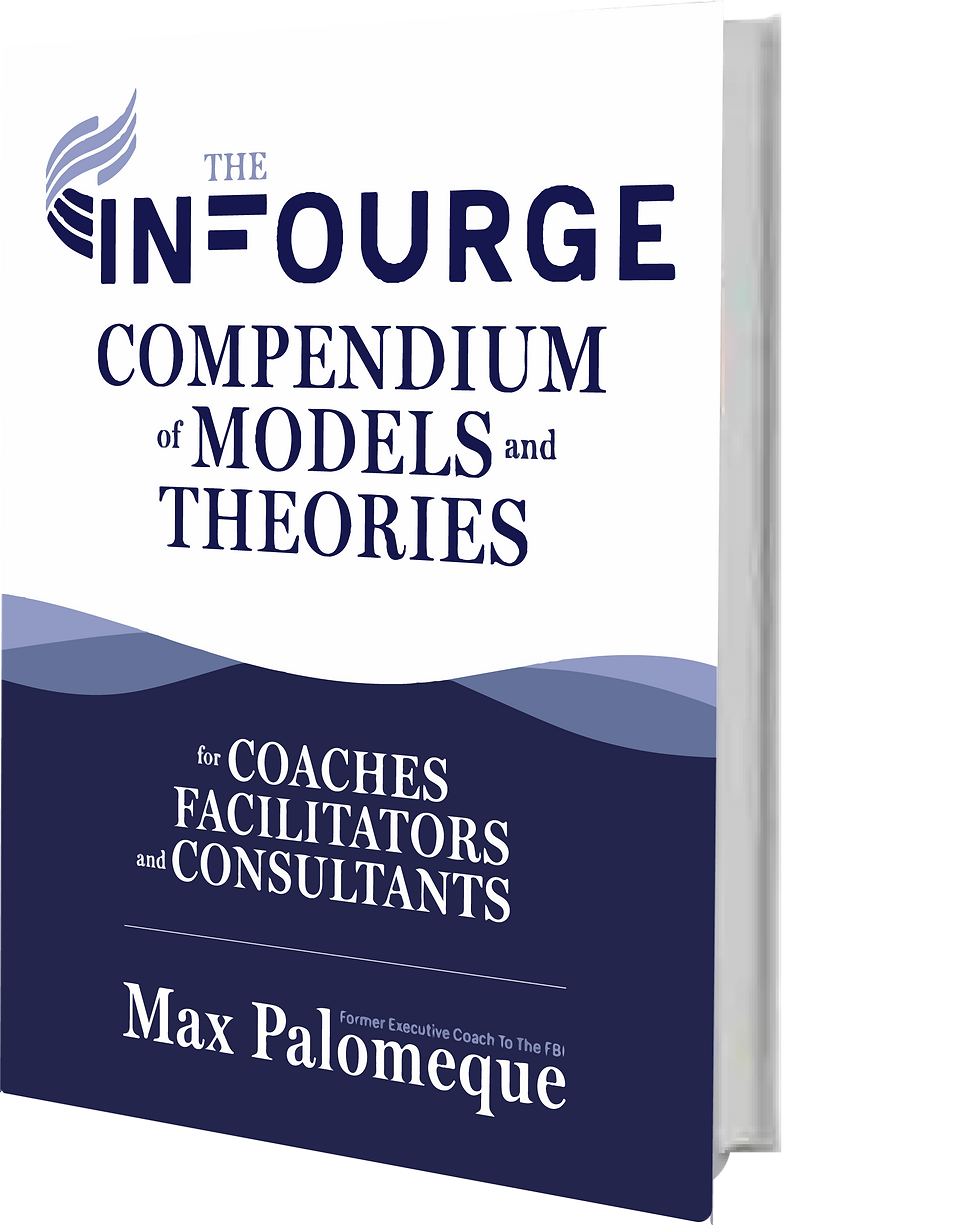The Infourge Compendium
Finalist: 2025 Indie Book Awards
(Education/Academic)

ADVANCED PRAISE FOR THE COMPENDIUM
About the Author

Max Palomeque
MBA
Former FBI Agent
Certified Leadership Coach
Crafting leadership at the highest level.
As a trusted coach and educator for the FBI, Department of Defense, U.S. Air Force, and Georgetown University, among many others, Max has facilitated and inspired leadership development in the private and governmental sectors. He has captivated audiences as a public speaker and lecturer, taking his highly-researched approach across the globe to Europe, Australia, and nationwide in the United States. Max is a proud and distinguished veteran after serving as an intelligence officer, and a respected former FBI agent specializing in human intelligence.
No matter if you are a coach, consultant, trainer, facilitator, therapist, leader, or HR professional or executive, this book needs to be on your bookshelf.
At your fingertips you will find dozens of one-page descriptions of well-researched and vetted thinking and relating tools. You will become the master of all things leadership and relationship.”
“Want to know which framework to use for Change Management? Boom, here are 44 models to choose from. Need some help with Problem-Solving? Bam, here are 33 methods to get solving. Trouble by lack of Motivation in your team? Shazam, here are 21 models to get them moving forward.”
“This book could easily sell for over $100, but this university-level textbook is a steal at under $35. If you work as a coach, consultant, trainer, or facilitator, buy it today. It will make your life so much simpler and richer. Your clients and your teams will appreciate your effort to make life better!
J. Glenos / Principal, LEAD+SUCCEED
“Well-structured and deeply valuable.
This book is an outstanding resource for coaches of all levels, offering a comprehensive compendium of models and theories that are both broad and deep.
What makes this book truly remarkable is its adaptability - it allows coaches to integrate their own education, previously learned tools, frameworks, and experiences into creative new approaches for their client engagements. The thoughtful categorization of information makes it easy to align the content with whatever a client brings to the conversation.
A must have reference for any coach seeking to expand their toolkit and enhance their flexibility and impact. Well done to the author for delivering such a valuable resource!”
D. Beabout / CISO NTT Security Holdings
“This book has become indispensable in my coaching practice.
I regularly turn to it to discover different tools and methods to support my clients in achieving their goals. With an overwhelming number of models and theories out there, having a single source that succinctly summarizes over 300 of them is a huge timesaver.
The clear, digestible summaries allow me to quickly understand each model, and the added references for further reading provide an excellent pathway for deeper exploration. I highly recommend this book to anyone looking to enhance their toolkit with reliable and well-organized information.
I am anxious for Vol II and III's publication!”
M. Rudell / Director of Coaching, KAVEO Leadership
Excerpt
Toxic Positivity
The term Toxic Positivity describes the excessive or inappropriate use of well-intentioned positivity which avoids, rejects, suppresses, invalidates, or minimizes a person’s negative emotions or experiences. As grief expert David Kessler says, “Toxic positivity is positivity given in the wrong way, in the wrong dose, at the wrong time.
The sources of toxic positivity vary, but some of the most common reasons a person engages in toxic positivity may include anxiety or discomfort stemming from another person’s pain, a lack of social skills to deal with a person’s negative feelings, low empathy for the person, or a general lack of awareness of how to handle or support a person experiencing intense negative feelings.

Selected Topics
featured in The Compendium
Bias
How and why we experience prejudices about ourselves and others.
Conflict
How and why people come into conflict with each other and how to seek resolution.
Decision-Making
Methodical approaches to making decisions of varying levels of difficulty.
Employee Engagement
Variables that can influence an individual’s level of enthusiasm and commitment to others and the organization.
Leadership
Dozens of frameworks to help us explore different styles of leadership and the situations in which some styles may work better than others.
Problem-Solving
Methodical approaches solving problems of varying levels of difficulty.
